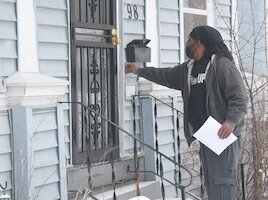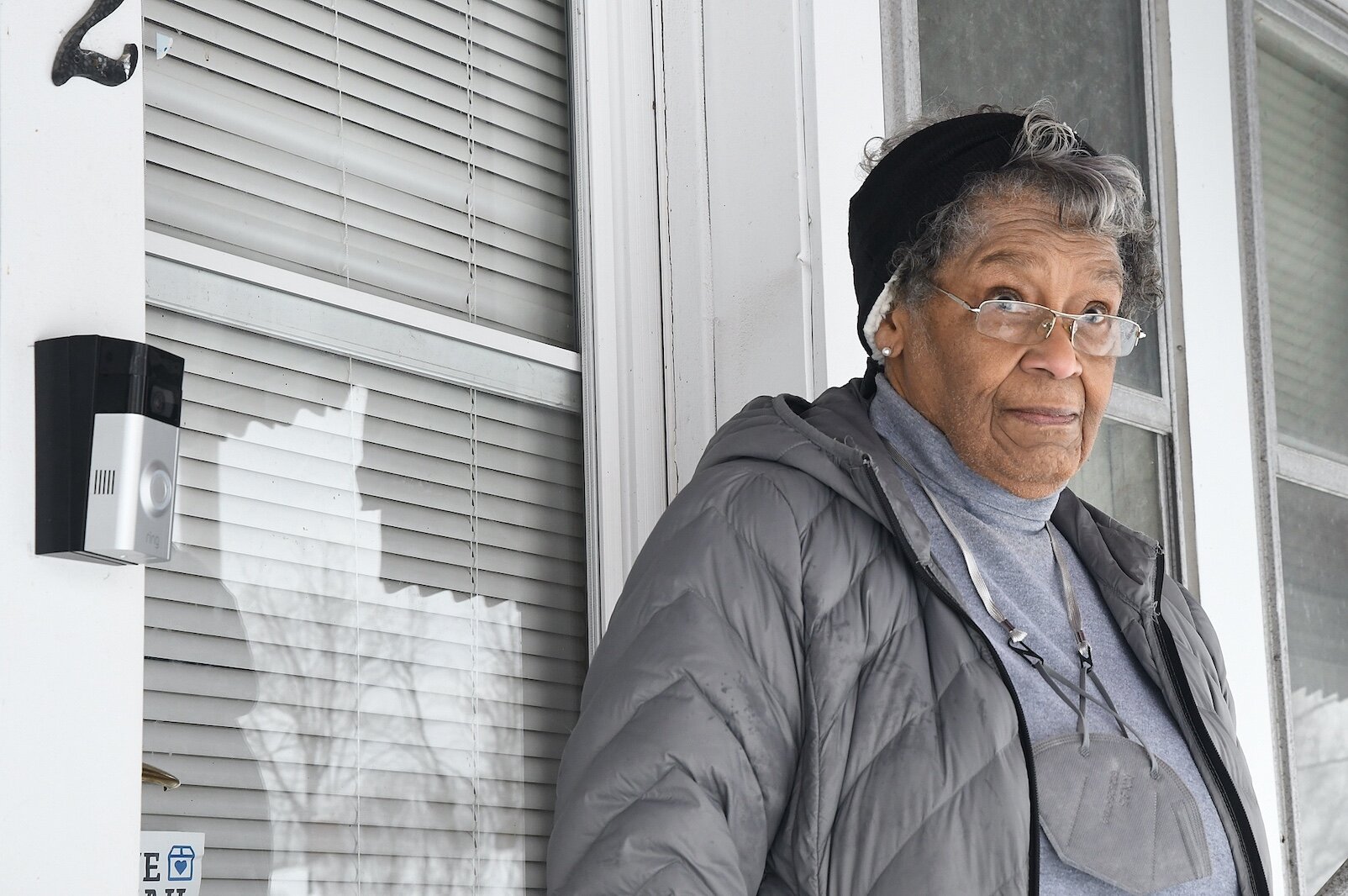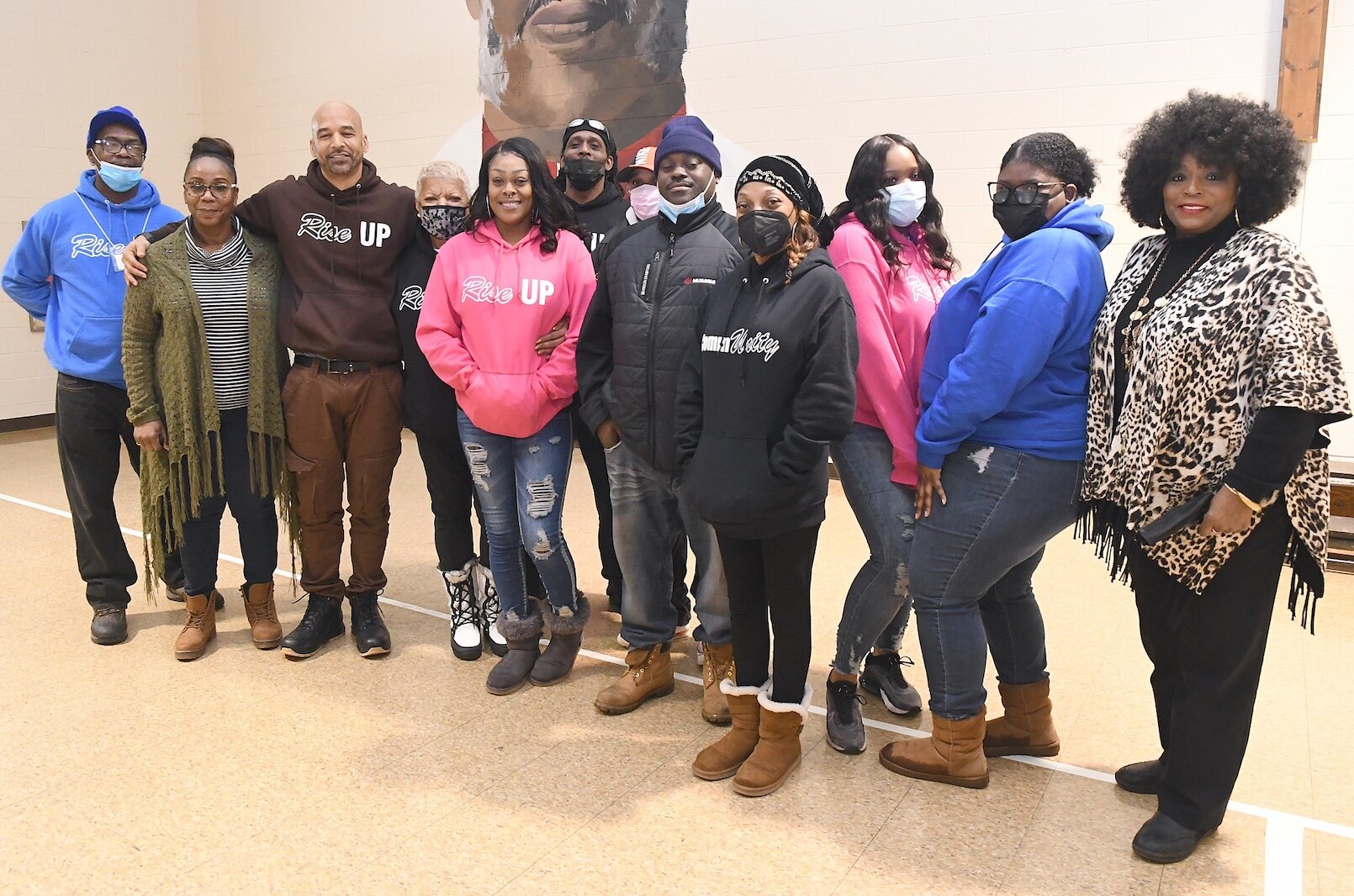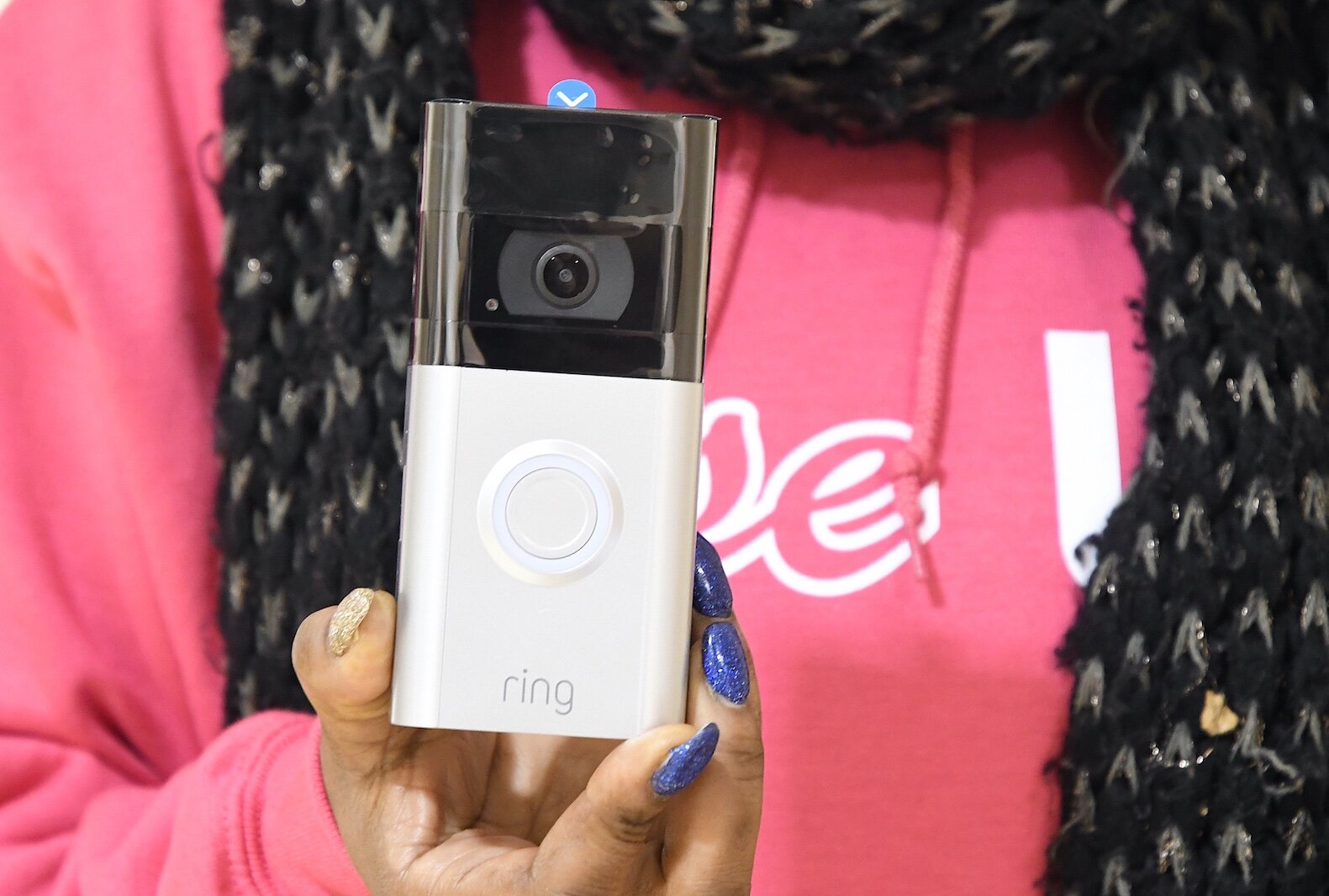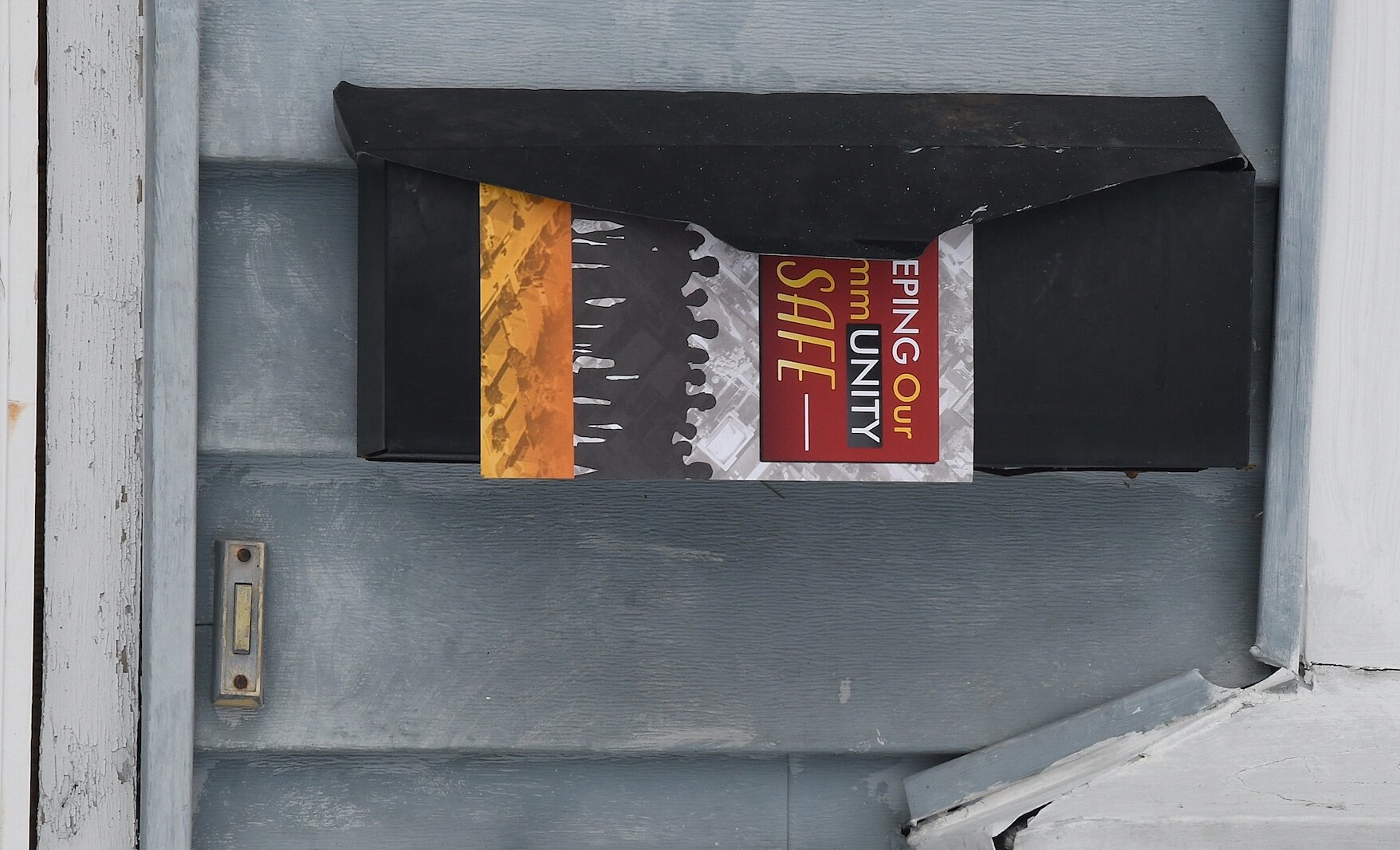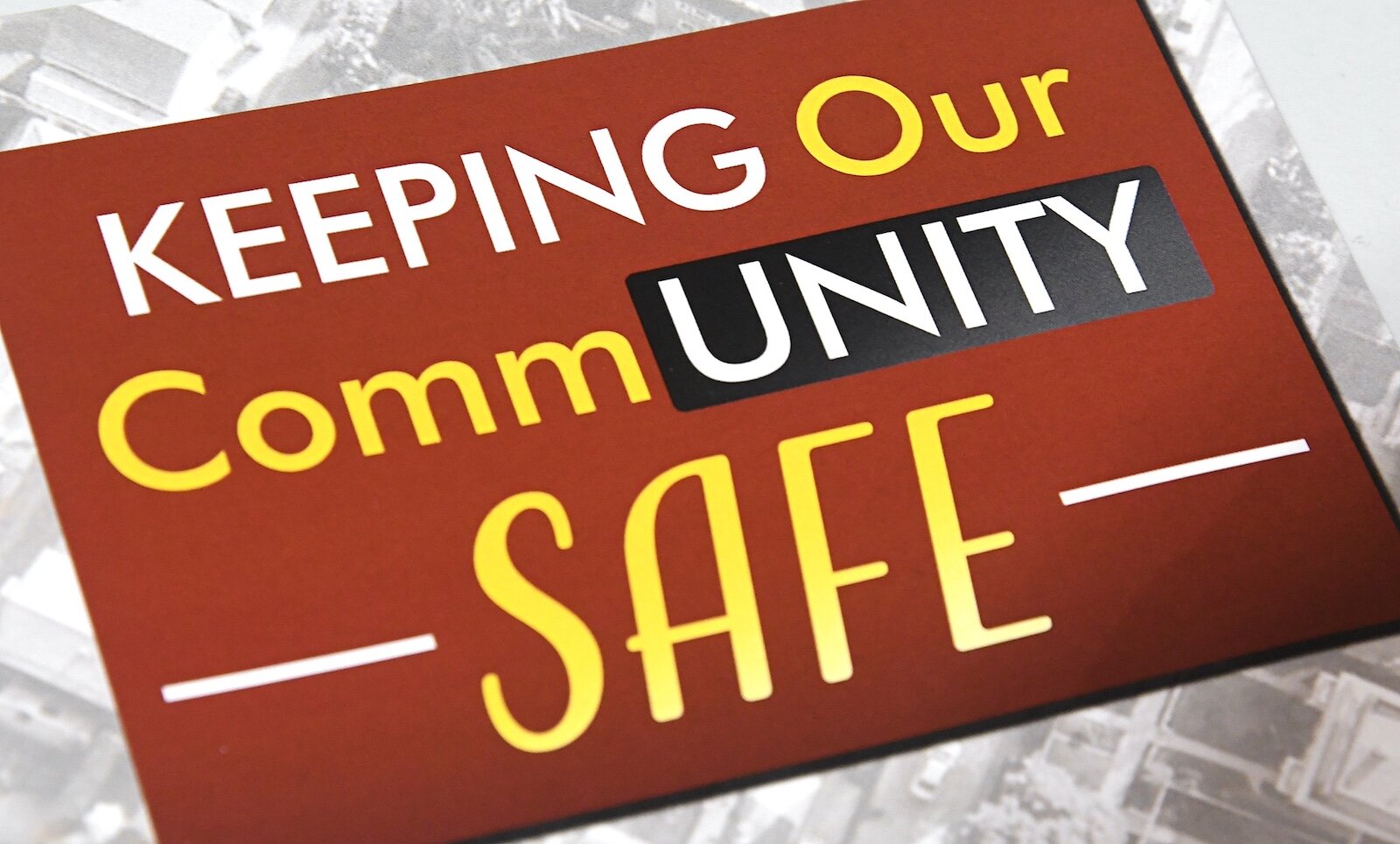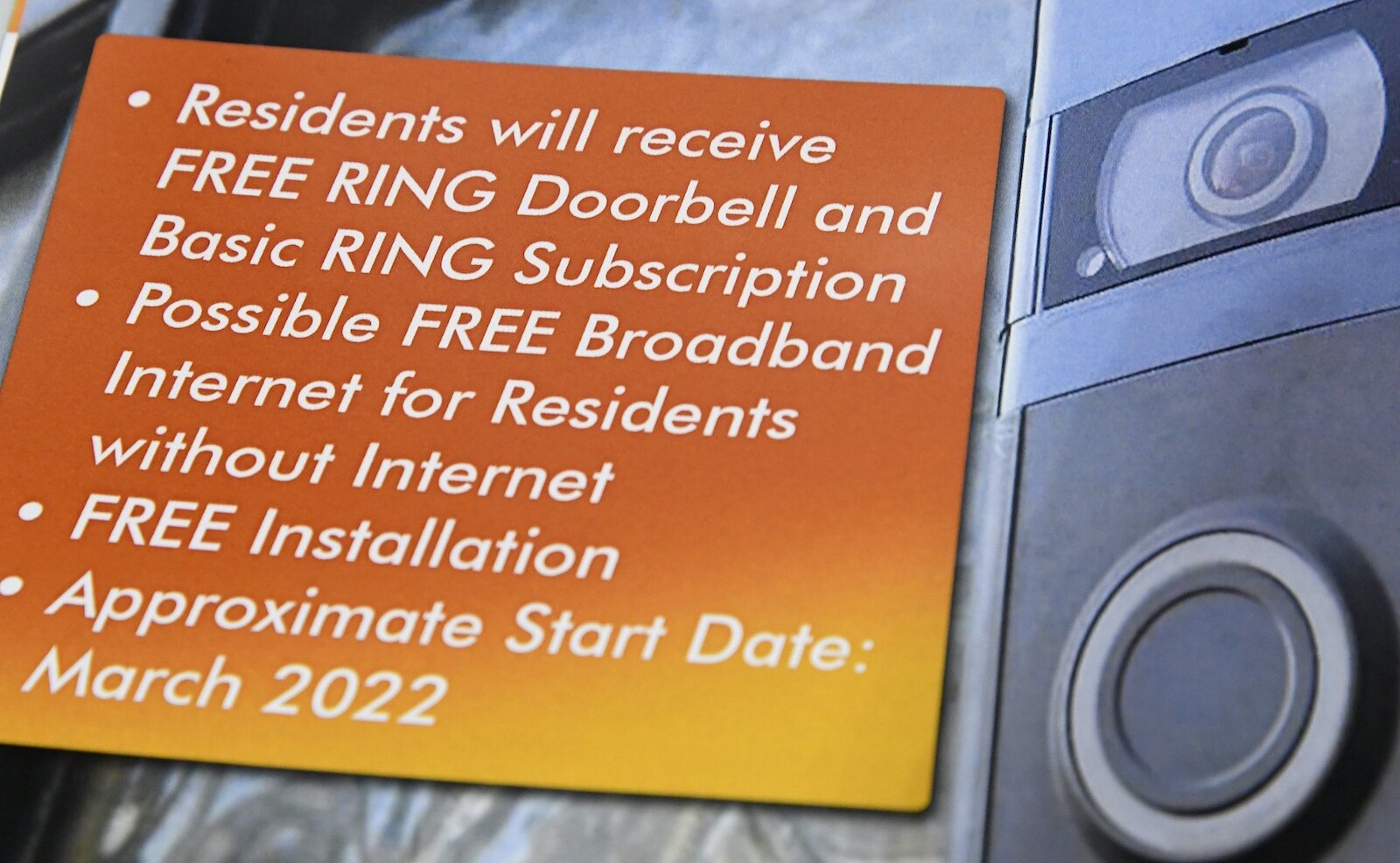Editor’s note: This story is part of Southwest Michigan Second Wave’s On the Ground Battle Creek series.
As a parent and grandparent, there are a lot of things Damon Brown wants to pass down to his three daughters, a grandson, and a granddaughter. A neighborhood that is safer than the one he grew up is one of them — a part of the legacy he’d like to leave someday.
Born in Battle Creek and raised in the city’s Washington Heights neighborhood where he still lives, Brown became both a statistic and a part of the history of crime in that area of town which is referred to as District D by the Battle Creek Police Department. But, his 12-year stay in prison for selling crack cocaine in 2001 has become a footnote for the former gang member whose latest project is focused on empowering residents of District D with a new tool to reduce crime in their neighborhood.
That tool is a Ring Doorbell system that is being made available free of charge to any resident who wants one in District D, which includes Washington Heights. The initiative is spearheaded by Brown in his role as founder and Executive Director of R.I.S.E. (Reintegration to Support and Empower), a nonprofit founded in 2017 by Brown and Tim Reese, who spent more than 29 years as an educator in inner-city schools before retiring.
The organization’s overarching mission is to support and empower the community’s at-risk youth by providing them with opportunities to navigate their own journeys to success. The opportunities have been expanded to include changes to the narrative associated with Washington Heights.
“Criminal activity has never been accepted or tolerated in our neighborhood. But it continues to happen and our residents are paying a steep price because of it, some of them with their lives,” Brown says. “We have to show our kids that this is not O.K.”
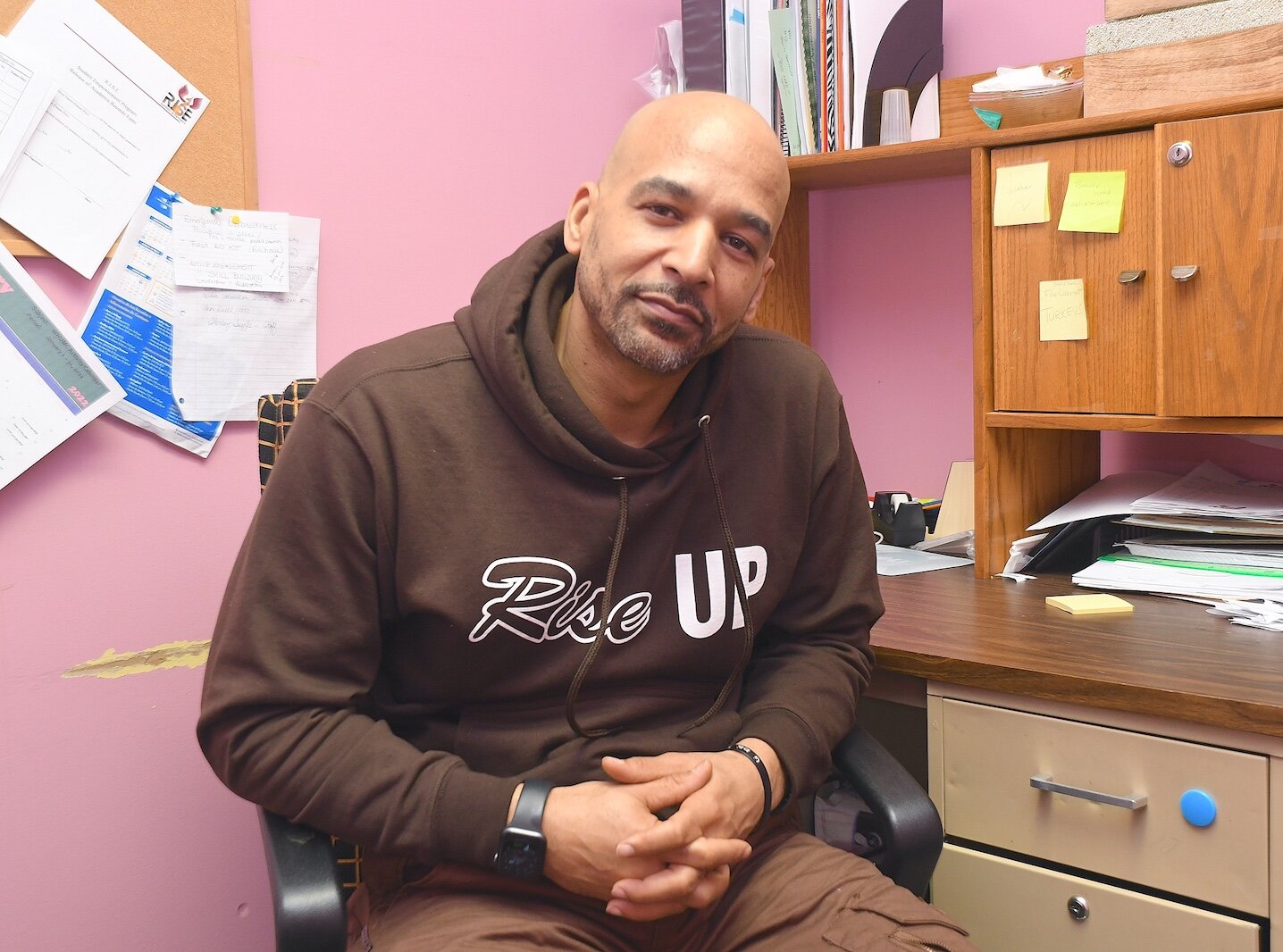
From 2017 to 2021, District D, has annually averaged two murders, 300 assaults, and 60 burglaries, according to BCPD Crime Reports. As a resident of the neighborhood, bounded by Limit Street to North Avenue and Dickman Road and Coolidge Avenue to Orchard Park, Brown has always taken this criminal activity personally, but it became very personal with the death of Eniyah Hollins, his daughter’s best friend.
Hollins, 24, died after being shot on June 27, while standing on the edge of a driveway during a party on Hanover Street. Brown’s daughter called him in the early morning hours of June 27 to tell him what had happened and Brown met Hollins mother, Nakisha Newton, at a local hospital to identify Hollins.
“Just seeing so much community violence, I’ve lost a lot of people to violence from an early age,” Brown says. “In 1996 when I was 17 my best friend was killed and there have been so many things since then.”
Seeing the same levels and severity of violence he began experiencing as a child now happening with the next generation catalyzed Brown to introduce the Ring Doorbell program as an element in the efforts to decrease crime in District D. He says the success of such a program was proven even before he began moving forward with his idea.
In early July, an arrest was made in Hollins murder as a result of footage captured on a Ring doorbell installed at the home of a resident who lives in close proximity to the site of the fatal shooting. Brown says the footage showed a car that led them to a suspect. Police have said that they don’t think Hollins was the intended target.
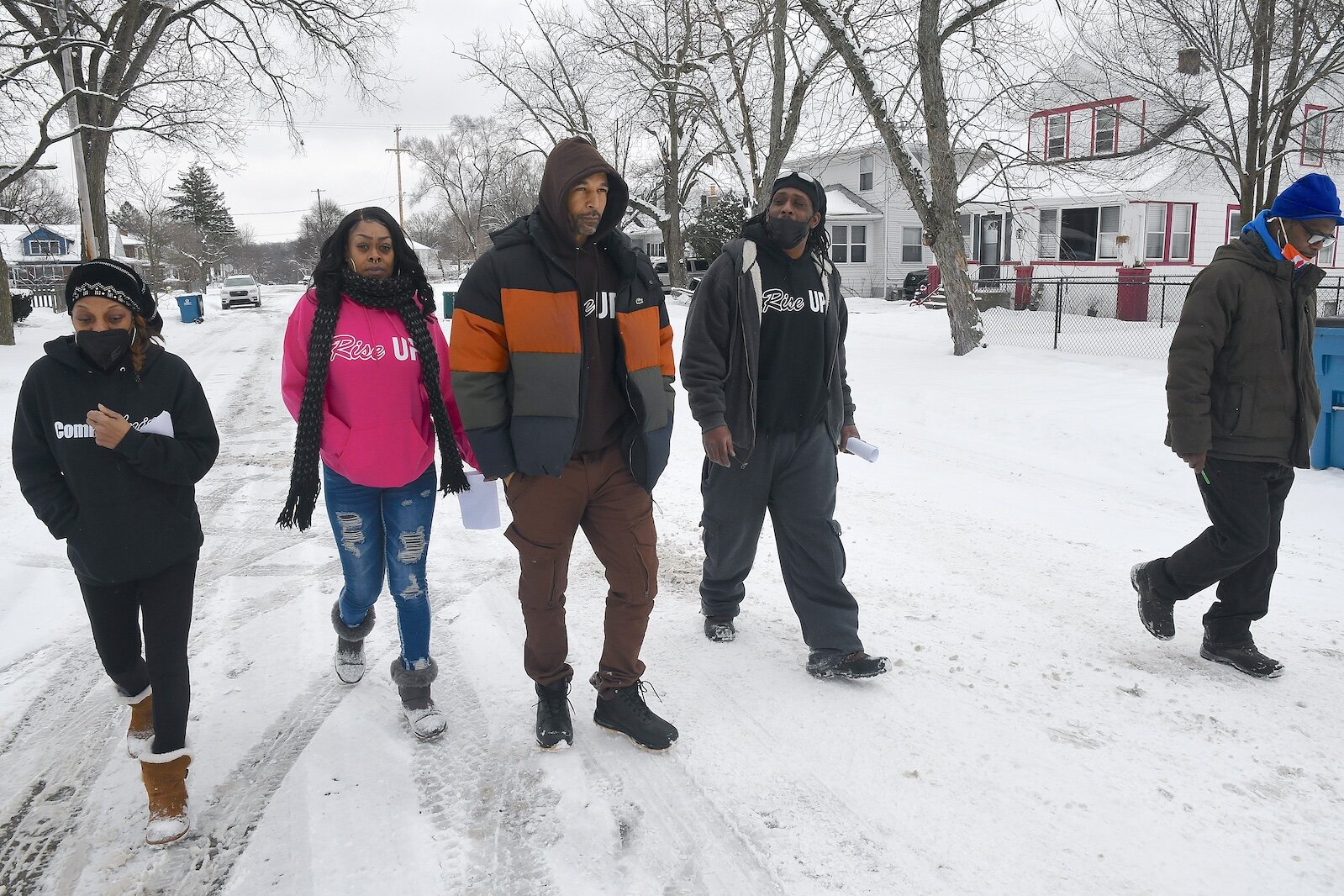
“I thought, what if the community had these doorbells and they were made available to anyone who wants one?” Brown says. “I think this would deter people if they knew there was a possibility of them or their vehicle being identified. I did 12 years in prison and I would not do something when I knew there would be a possibility of being seen doing that.”
Troy Gilleylen, BCPD Deputy Chief, says the department supports Brown’s efforts. He says similar efforts have been happening in cities throughout the United States.
“It doesn’t give us a complete picture, but it helps us connect the dots to lead us to a suspect,” Gilleylen says. “There could be reluctance by certain people to have their name attached as witness information. Some people may want to remain anonymous. Any tool we can use is helpful, especially when it comes to solving crime.”
Brown and Gilleylen both say that police involvement will be on the back-end of the process. Brown says that residents who sign up for the program are the owners of the doorbell systems and own the rights to the footage which gives them the option to share or not share footage with law enforcement.
Ring has police partnerships, which now encompass 1 in every 10 police departments in the United States. Brown emphasizes that the local program is a community-driven, not police-driven, initiative.
Ringing doorbells, knocking on doors, gathering support
In October, Brown met with representatives from the Binda and Battle Creek Community foundations, the W.K. Kellogg Foundation, the city of Battle Creek, and the BCPD to discuss his idea, gather support, and identify funding sources to cover the cost of purchasing and installing the Ring 3 video doorbell systems that will include a free subscription to the service.
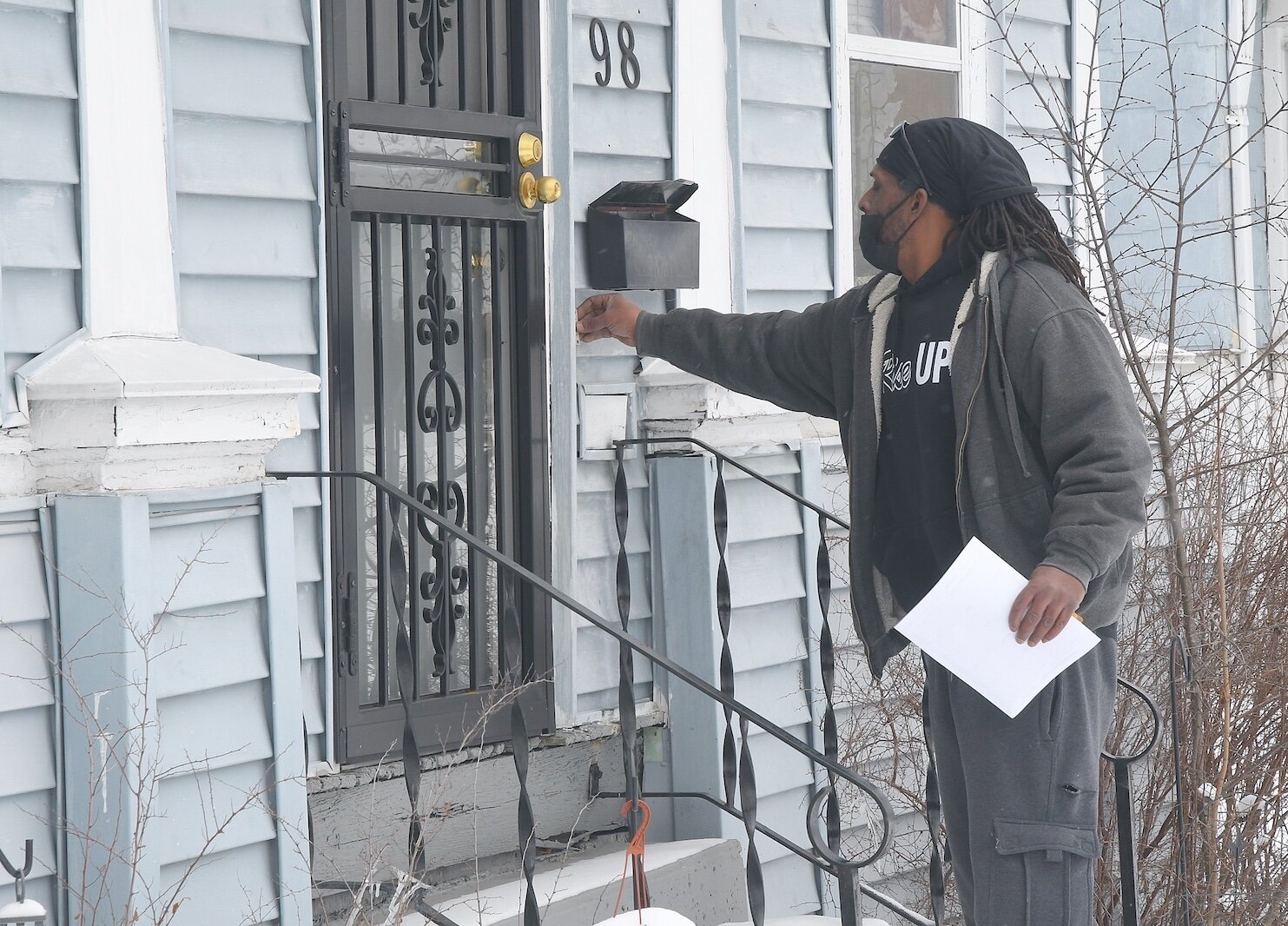
The average cost of the doorbell is $179 with subscriptions starting at $3 per month. Ring doorbell-camera wireless devices can stream real-time video to a user’s smartphone, tablet or desktop, allowing homeowners to see and talk to people on their doorsteps.
Brown says he is continuing to identify funding sources. He says Ring is giving the Battle Creek program a discount.
The total bill is $107,194 for 600 of the Ring doorbell systems at $179.99 each and the discount is in amount of $21,598.80, Brown says.
“The total with the discount from Ring is $86,395.20,” he says.
Ring has offered similar discounts in other communities.
Following pilot programs, including one of the earliest in 2015 involving the Los Angeles Police Department, which showed some success, “Ring went on to make communities an attractive offer: Ring would give their residents a $100 discount on its doorbells, which were selling for about $180 at the time, provided the cities kicked in half the cash. Public records show that over a dozen small cities leaped at the offer, committing between $10,000 and $100,000 in the hope of reducing burglaries. By September 2018, Ring had negotiated contracts worth at least $420,000 for such neighborhood rebate programs,” says an article in the MIT Technology Review.
“But a review of public crime data and a previously unreported study show that the evidence the doorbells slash crime is far shakier than the company would have cities and consumers believe,” says the Technology Review article. “In fact, the only study carried out independently of Ring found that neighborhoods without Ring doorbells were actually less likely to suffer break-ins than those with them.”
Brown says he knows that the Ring systems won’t prevent all criminal activity.
“We’re looking to deter and reduce crime by 15 or 20 in the first year,” he says. “By no means are we saying that Rings are going to stop crime completely. They are one component to help deter crime and bring crime down.”
The Ring program will be complemented with individuals who will be out following up with residents who see suspicious activity. He refers to individuals doing follow-ups as “interrupters,” some of whom work with R.I.S.E., who have credibility and the respect of community members.

He offers a hypothetical example of Miss Smith who sees Little Bobby engaging in criminal activity, but may not want to see him go to jail for it because he’s basically a good kid caught up with the wrong people or in the wrong circumstances.
“We can talk to him about it and make it a teachable moment,” Brown says. “When residents get “Knowing the prevalence of violence and having worked with RISE, we definitely know the impact they have and have had in their communities, especially during the pandemic,” says Irene Muthui, Associate Director of Impact and Equitable Systems for the United Way of the Battle Creek Kalamazoo Region which administers the CCG funds. “They know the needs of the community and that was another reason we decided to support this program. We know how impactful RISE is and the work that they do.”Ring, they’ll be part of a neighbors app and be able to post in real time, so Miss Smith can post a picture of a person engaged in suspicious activity on the website and everybody can see that person.”
Ring launched in 2013 and was purchased by Amazon in 2018. Although it has millions of subscribers, it has had its share of pushback from those concerned about privacy issues.
Brown says more than 600 of the 2,092 households in District D have signed on to the program.
A team of more than 20 volunteers, including Hollins mother, began going door-to-door on January 17 for a five-week period to talk with residents about the program and see if they wanted to be involved. The canvassers were paid $20 an hour.
A $50,000 grant from the Catalyzing Community Giving initiative paid for the work done by the canvassers.
“Knowing the prevalence of violence and having worked with RISE, we definitely know the impact they have and have had in their communities, especially during the pandemic,” says Irene Muthui, Associate Director of Impact and Equitable Systems for the United Way of the Battle Creek Kalamazoo Region which administers the CCG funds. “They know the needs of the community and that was another reason we decided to support this program. We know how impactful RISE is and the work that they do.”
Brown says his organization hopes to begin installing the Ring systems in March.
“We definitely want to be prepared for the summer months. To me, the number of residents who have already signed up is a clear statement that people are tired, fed up and they want to feel safe,” Brown says.

